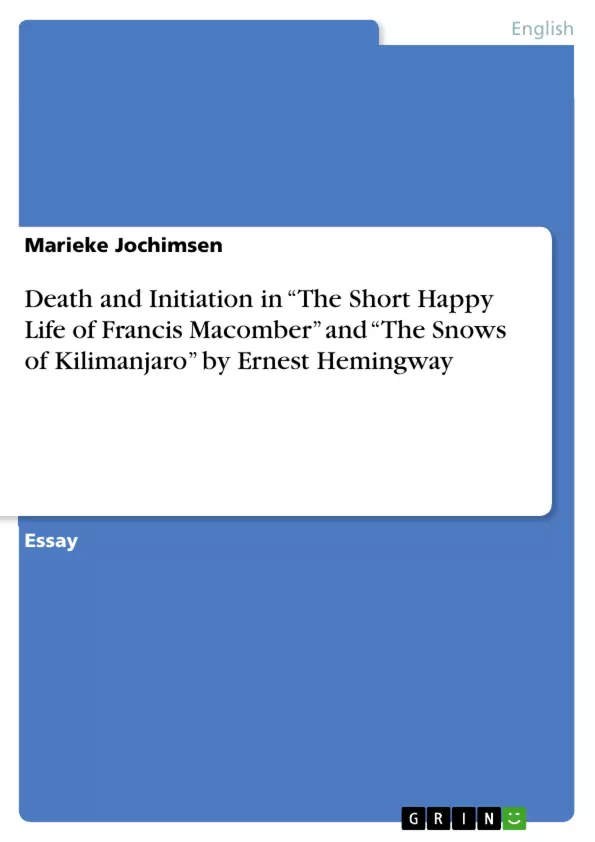The two short stories “The Short Happy Life of Francis Macomber” and “The Snows of Kilimanjaro” by Ernest Hemingway, were both published in 1936, and deal with the confrontation of death and male changes provoked by extreme situations. In the following these two stories are being compared and analysed, as to the question whether they are of fundamental differences or basically one story told in two ways.
Table of Contents
- Introduction
- The Setting
- The Characters
- The Circumstances of Death
- Existentialism
- Initiation
- Conclusion
Objectives and Key Themes
This essay analyzes Ernest Hemingway's short stories "The Short Happy Life of Francis Macomber" and "The Snows of Kilimanjaro," both published in 1936, focusing on the themes of death and the process of male initiation through confronting extreme situations.
- The confrontation with death in extreme situations.
- The process of male initiation through confronting fear and proving oneself.
- The influence of existentialism on the characters' decisions and choices.
- The role of the African setting in shaping the characters' experiences.
- The consequences of failing to confront one's fears and responsibilities.
Chapter Summaries
The essay begins by examining the settings of both stories, highlighting their commonality in the African plains and the impact of the wild environment on the protagonists. It then explores the distinct characteristics of each story's central characters, comparing Francis Macomber, a businessman initially presented as a coward, to Harry, a writer with a complex past.
The essay further analyzes the contrasting circumstances of death for both protagonists, noting Harry's slow demise due to gangrene and Francis' sudden death in a moment of perceived happiness. It then delves into the existentialist themes present in both stories, emphasizing the protagonists' awareness of their responsibility for their lives. This includes the burden of choice and the consequences of choosing comfort over facing one's fears, as seen in Francis' struggle with cowardice and Harry's regrets about a life unlived.
The essay concludes by examining the theme of initiation in both stories, exploring how Francis confronts his fear of death and proves himself through facing the lion, while Harry's initiation involves confronting and processing his experiences. It suggests that while the stories differ in their details, their underlying themes of death, initiation, and the impact of existentialism create a common narrative thread.
Keywords
The key themes and concepts explored in this essay include death, initiation, existentialism, fear, responsibility, courage, male identity, the African setting, and the works of Ernest Hemingway, particularly "The Short Happy Life of Francis Macomber" and "The Snows of Kilimanjaro."
- Quote paper
- Marieke Jochimsen (Author), 2007, Death and Initiation in “The Short Happy Life of Francis Macomber” and “The Snows of Kilimanjaro” by Ernest Hemingway, Munich, GRIN Verlag, https://www.grin.com/document/148623



